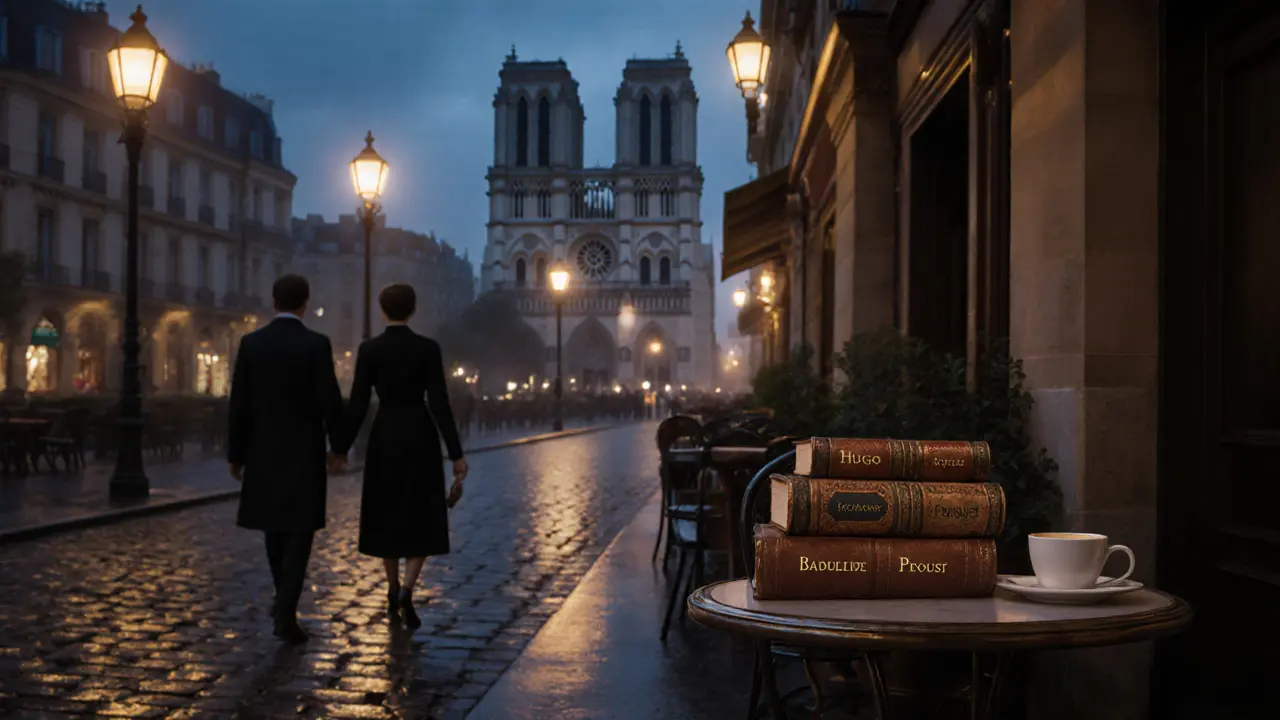French literature
When diving into French literature, the body of written works created in the French language from medieval chants to contemporary novels. Also known as la littérature française, it captures the evolution of ideas, style, and society over centuries. French literature encompasses poetry, drama, novels, and essays, each reflecting the era that produced them.
Why French literature matters
One cannot talk about Paris, the capital city that has long been a magnet for writers, philosophers, and artists without noting its role as a literary incubator. The city's cafés, salons, and boulevards have inspired countless stories, making the French literature scene inseparable from Parisian culture. Alongside the city, French cinema, the film tradition known for its avant‑garde storytelling and visual poetry often adapts classic novels, showing how written narratives fuel visual art. Similarly, French fashion, the haute‑couture industry that blends artistry with social commentary draws inspiration from literary characters, turning page‑turning descriptions into runway looks.
Understanding French literature requires a grasp of the historical backdrop that shaped each work. From the courtly love of the Middle Ages, through the Enlightenment’s rational critique, to the existential angst of post‑war novels, the genre demands context. This relationship creates a semantic link: French literature → requires → historical awareness. It also shows that French literature influences modern storytelling techniques, a trend visible in contemporary digital media.
Another key entity is cultural heritage. Cultural heritage, the shared legacy of language, art, and traditions passed through generations preserves the themes that French authors explore—identity, liberty, and love. When writers tap into this heritage, they enrich their narratives, and readers gain insight into the French psyche. This forms the triple: French literature → reflects → cultural heritage.
Readers today find that French literature is not just a museum piece; it actively shapes current debates on gender, politics, and technology. Modern authors remix classic motifs, while scholars reinterpret old texts through new lenses. The dynamic exchange keeps the field vibrant, proving that French literature remains a living conversation rather than a static archive.
Below you’ll discover a curated selection of articles that unpack these connections. From deep dives into how Parisian cafés sparked literary revolutions, to analyses of film adaptations that breathe new life into 19th‑century novels, the collection gives you practical insight and fresh perspectives. Whether you’re a student, a casual reader, or a seasoned scholar, the posts ahead will equip you with a richer understanding of the forces that drive French literature forward.
How French Literature Shaped the Paris Escort Scene
Explore how French novels, poems, and salons have shaped the Paris escort industry, from historic branding to modern SEO-friendly strategies.

